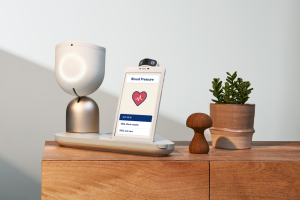
As our population continues to age, the demand for effective and efficient senior care is on the rise. With technological advancements transforming various aspects of our lives, it comes as no surprise that senior care facilities, including care homes, are embracing innovations to enhance the quality of care they provide. In this blog, we will explore the exciting world of technology in care homes, how it is revolutionising senior care and the benefits it offers to both residents and caregivers.
Assistive Technology
Assistive technology has become a game-changer in senior care homes. These innovative solutions are designed to assist seniors in their daily lives and promote their independence. Some examples of assistive technology include:
- Wearable Devices: Smartwatches and fitness trackers can monitor vital signs, track physical activity and even detect falls, providing valuable data for caregivers and healthcare professionals.
- Medication Dispensers: Automated medication dispensers can organise and dispense medications at the right times, reducing the risk of medication errors.
- Emergency Response Systems: Wearable or wall-mounted devices enable seniors to call for help in emergencies, providing peace of mind to both residents and their families.
Remote Monitoring and Health Tracking
Technology allows care homes to remotely monitor residents’ health and well-being. This real-time tracking can help detect early signs of health issues, such as changes in vital signs, irregular sleep patterns or increased fall risks. Caregivers can respond promptly to provide the necessary care or intervention.
Cognitive Stimulation
For residents with cognitive impairments such as dementia, technology offers cognitive stimulation and mental engagement. Apps and programs designed for seniors can improve memory, cognitive skills and overall brain health. Interactive touchscreen devices can be used for memory games, puzzles and virtual tours, keeping residents mentally active and engaged. Care homes, like fairviewcourt.co.uk, focus a lot on the mental well-being of their residents, as this also has a beneficial impact on their physical health.
Social Connection
Social isolation and loneliness are common concerns in senior care. Technology bridges the gap by facilitating communication and social interaction. Residents can connect with family and friends through video calls, emails and social media platforms. Virtual reality (VR) and augmented reality (AR) experiences can transport residents to different places, fostering a sense of adventure and exploration.
Electronic Health Records (EHRs)
Digital health records streamline the management of residents’ medical information. EHRs enable healthcare providers to access residents’ medical history, medications and treatment plans instantly. This enhances the coordination of care among healthcare professionals and reduces the chances of medical errors.
Enhanced Security and Safety
Advanced security systems, including surveillance cameras and access control, enhance safety within care homes. These systems deter unauthorised access, monitor common areas and ensure the safety of residents. In the case of emergencies, advanced notification systems can quickly alert staff, allowing for a rapid response.
Challenges and Considerations
While technology in care homes offers numerous benefits, there are also challenges to consider. These include the initial cost of implementation, staff training and the need for ongoing technical support and updates. Additionally, ensuring that technology is accessible and user-friendly for residents with varying levels of technological familiarity is essential.
Conclusion
The integration of technology into care homes represents a significant step forward in senior care. These innovations enhance the quality of life for residents, improve healthcare outcomes and provide peace of mind to families and caregivers. As technology continues to evolve, the future of senior care holds exciting possibilities, promising even more innovative solutions to meet the unique needs of our aging population. Embracing these advancements ensures that seniors can age with dignity, comfort and the highest quality of care.

